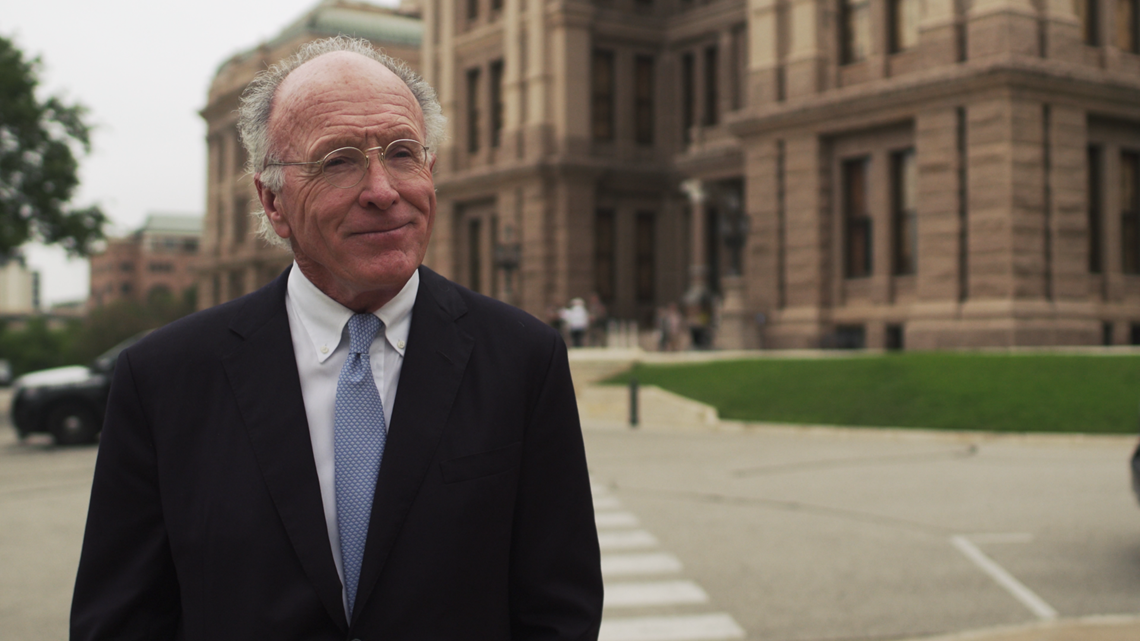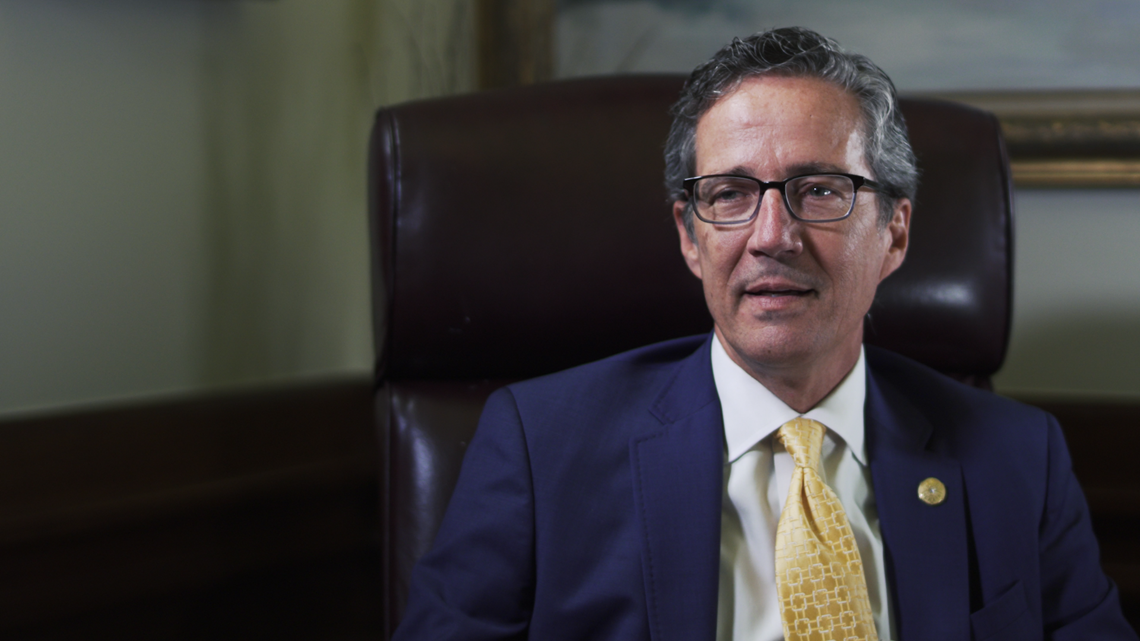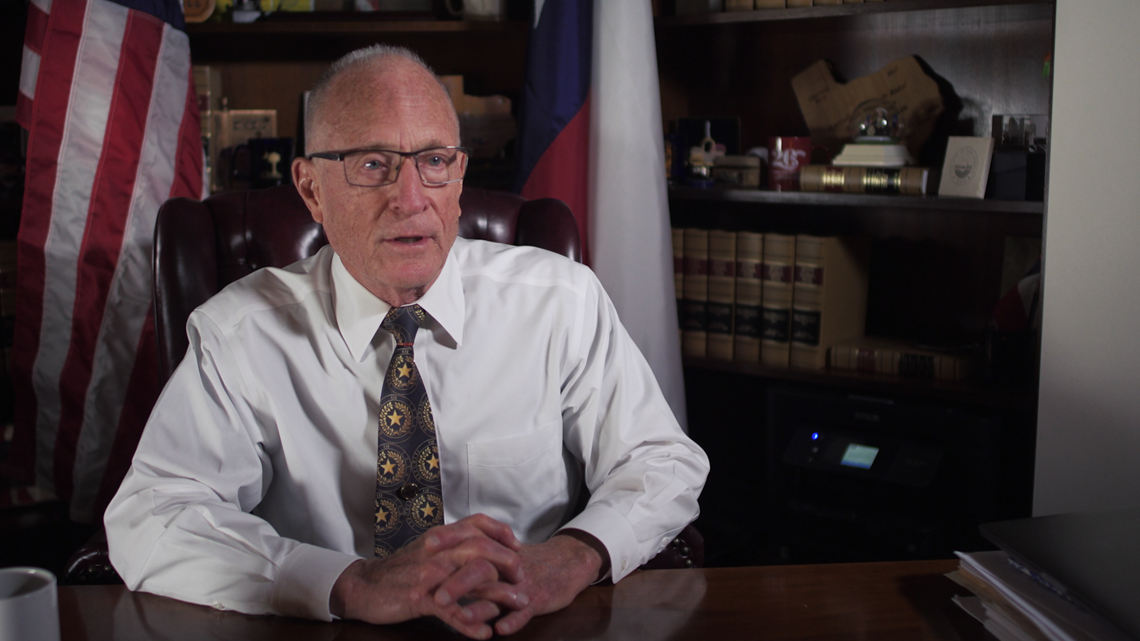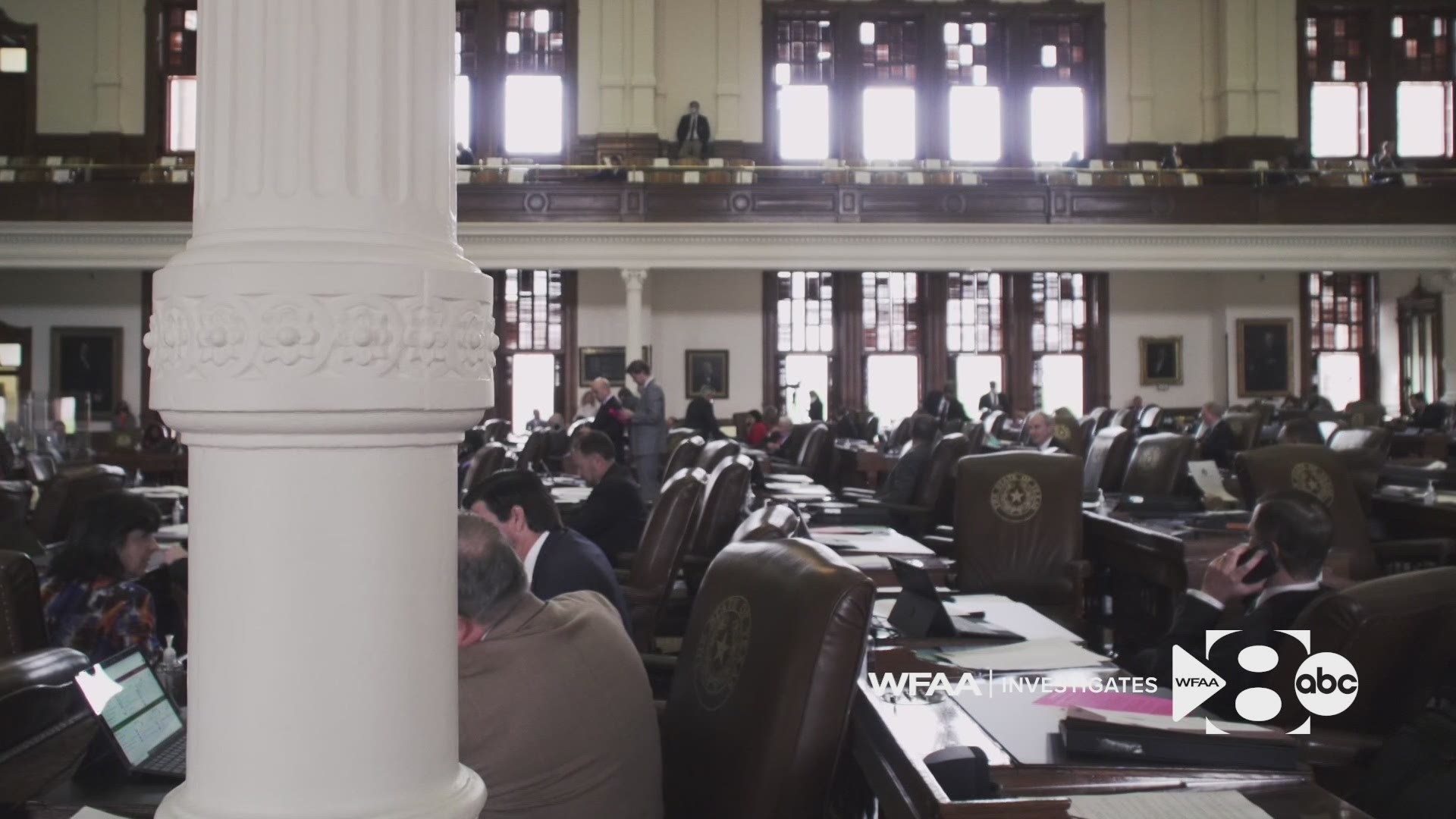AUSTIN, Texas — Every two years when lawmakers assemble at the Texas Capitol for a new legislative session, they are joined by thousands of lobbyists hired by special interests to influence how laws are made.
This session, the most powerful professional arm twisters are focused mainly on one thing: the Texas power grid.
Its spectacular collapse during February’s record-smashing winter storm revealed how unprepared our power system was to handle days of below-freezing temperatures.
About 4.5 million Texans lost power and heat the week of Valentine’s Day, and about 150 died, when power plant pipes and instrumentation froze and went offline. Some gas-fired plants were unable to power up and generate electricity because the plants couldn’t get natural gas for fuel because of winter outages in the oil patch.
The public rightly demanded answers, and more importantly, swift action from Austin.
Power plants officials, and the natural gas firms that supply their generators with fuel, knew what was coming: a mandate to prevent another tragedy by spending million, maybe billions, to weatherize all their facilities that froze up and stopped working during the storm.
To help manage the legislative storm, the Texas energy sector hired lobbyists. Hundreds of them.
“Yeah, they would be very foolish not to be well-represented while their futures are being debated,” said Bill Miller of HillCo Partners, one of the most influential lobbying outfits in Austin. Records show he’s representing 23 clients this session, including a major energy company.


“They need to have good, strong, smart people representing their interests, arguing for their side, whatever it may be,” said Miller, a 35-year veteran in the business. “And buying that kind of talent - it does cost money.”
“There's an old adage that, if you're not at the table, you might be on the menu,” said Dr. Clare Brock, a Texas Woman’s University political science professor in Denton, and expert on lobbying.
Oncor, Vistra top of the list
WFAA obtained public lobbying activity reports from the Texas Ethics Commission and spent weeks analyzing the data.
We found North Texas-based Oncor, which controls power lines and poles for one-third of the state, and Vistra, the state’s largest owner of power plants, were two of the biggest spenders in the entire state, ranking third and sixth among entities that hired lobbyists.
Both companies have 28 registered lobbyists registered this session, some of whom are Oncor and Vistra employees, and reports show they’re spending as much as $2 million each, even as they face major profit losses from the storm.
Vistra officials would not agree to go on-camera to answer questions about their lobbying efforts, and did not answer any of our written questions.
Oncor spokesperson, Kerri Dunn provided WFAA with both a phone interview and written statement.
“We had our lobbying team put together in January,” Dunn told WFAA “Most of these members have been with our team for years. We did not particularly ramp up our team in response to the (February) storm. But it obviously is a focus of our team ….”
In a statement, Dunn said Oncor lobbyists advocate also for customers.
“We focus on advocating for the needs of our customers and our industry,” the statement said. “Since the February freeze and resulting power emergency, Oncor has been actively working with local stakeholders, market participants and elected officials to do our part to help ensure an event like this does not happen again. We appreciate the attention and work legislative and regulatory members have given this important issue. We will continue to monitor pending legislation.”
WFAA found energy-related industries this legislative session have hired 338 lobbyists, spending up to $24 million for their services in the first three-and-a-half months of this year. That’s more than the companies spent all of 2019, the last time the legislature was in session, the analysis found.
“It’s not surprising at all,” said Ed Hirs, a University of Houston energy economist. “While it looks like a lot of money, It’s a small, tiny fraction of what this industry has creamed off the top of the Texas electricity market.”
Hirs says Texas consumers already pay too much for energy, citing a Wall Street Journal analysis that reported Texas’ deregulated electricity market raised costs to consumer by $28 billion since 2004. Additionally, surging natural gas prices during the freeze – as power plants and other consumers ran low on gas – led to billions of dollars in windfalls for pipeline operators and investors, he says.
“We’ve set up the ERCOT casino over on the side with a bunch of electricity and energy traders,” Hirs said. “That doesn’t exist in a regulated market...The big losers: the consumers. Almost 200 dead and $50 billion changing hands from the consumer side of the ledger to the consumer side.
“There are no lobbyists in Austin looking out for the consumer," Hirs added. "That's of course what the legislators are supposed to do….”
Others say they also remain unsurprised by the failure of the Texas Legislature, with only days remaining before the end of the legislative session, to draft stronger measures to avoid another disastrous freeze. They blame the failure, in part, because of the ability of energy-related lobbyists to sway lawmakers.
“After watching the failures for 40 years of lawmakers and the PUC and sister agencies – storm after storm - to enact strong measures, I’m not surprised," said Tom “Smitty” Smith, former director of the Texas office of Public Citizen. He says the most recent bills fail to set firm deadlines and strong enough penalties for gas and electric companies to weatherize and install needed equipment.
Smith, however, told WFAA he disagreed with the Wall Street Journal’s analysis that a deregulated market had cost Texas consumers billions of dollars.
“The analysis done by many indicates the rates are actually lower in Texas due to competition kicking out the older, dirtier and least efficient plants,” Smith said. He said tweaks to the “market design” need to occur, with gas and electric price caps too high.
“I think we need to put more effective caps on the hottest days of summer and coldest days of winter,” Smith said.
Subtle, but sizable, influence
Records WFAA analyzed reveal oil and gas interests have comparatively fewer lobbyists on staff than the electric industry. Some critics claim that’s because their influence is engrained in Texas politics, allowing them to wield more power with fewer paid lobbyists.
“There is a hidden army of oil and gas executives and equipment suppliers that are alerted every time there is a need to call lawmakers,” Smith told WFAA. "Often the biggest donors to legislators jump into action at the reception of a text.”
Smith told WFAA the oil and gas industry network is the best “corporate network of anyone in the state.” The network involves not just phone calls, but campaign donations.
Oil and gas contributions comprised 60 percent of the campaign contributions to the Texas Railroad Commission, which is supposed to regulate the industry, according to a recent Texans for Public Justice study.
This session, for example, one of the strongest voices advocating for the oil and gas industry has been a current elected official, Christi Craddick, RRC chair. Critics like Smith say because most of Craddick’s campaign contributions come from those she regulates, her public message often is more cheerleader than overseer.
“She is bought and controlled by the oil and gas industry,” Smith said. He said that Craddick, along with the two other RRC Commissioners – Wayne Christian and Jim Wright – often appear in lockstep arguing that electric power plants need to weatherize, but not oil and gas facilities. That’s despite evidence that fossil fuel extraction and delivery tanked days before the lights went out, indicating it, too, was affected by the cold.
In a statement, Craddick told WFAA that her campaign contributions from oil and gas interests are fully disclosed according to law. “As a regulator of the oil and gas industry, it stands to reason that my political contributors would include entities that operate under the jurisdiction of the Railroad Commission of Texas.”
She also defended her public advocacy of oil and gas.
“My public comments related to the oil and gas industry are reflective of my support for a healthy and robust state economy,” Craddick said. “The oil and gas industry provides one third of our state’s economy and, as a Texan who appreciates the roads, bridges, schools, and water infrastructure funded by this industry, I will continue to advocate for a vibrant Texas energy sector and overall economy.”
Lobbyists gifts
Due to allowed time lags in reporting, lobbying disclosures on gifts given to lawmakers this session aren’t entirely available yet. But looking at prior legislative sessions, gifts to lawmakers included Cowboys and Rangers tickets; a night at the Four Seasons; spa treatment packages; gift certificates; and bar tabs at the Cloak Room, a favorite lobbying hangout in Austin.
With energy and electricity reform on the table, Miller says this year’s gifts are sure to be just as lucrative.
“We're talking about billions and billions and billions of dollars,” Miller said. “We're talking about the survival of companies and co-ops and electricity interests. We're not talking about small potatoes.”
“It just rubs us the wrong way, right?” said Dr. Brock, whose research focuses on lobbying behavior.


“People have a really icky feeling about money and politics,” Brock told WFAA. “People feel like it must be corrupt. You know, our political process is supposed to serve us. At the same time, every single person has that right to organize and petition government. And lobbying is nothing if not organizing and petitioning government.”
The influence game
Lobbyists typically may be subject matter experts, Dr. Brock said. They may even be former lawmakers.
“Lobbyists are trained to have a seat at the table and influence these small provisions one way or the other,” Brock said. “They might not be able to make or break outcomes. They might not be able to alter the trajectory of what's happening in government, but they might be able to change a definition.”
For example, changing a simple word in a bill from “and” to “or” could end up saving an energy company millions of dollars. In other words, what would have been a requirement to spend money might end up being… just a recommendation.
Companies that hire lobbyists know they’re getting their money’s worth. A study after the 2008 housing collapse looked at the effect of lobbying and found companies that lobbied Congress saw returns of more than $220 for every $1 spent on lobbying.
Local officials
So, who are the key local lawmakers in power grid reform, and what do they say about the influence of lobbying on decision-making?
“There is a good side to it. There's also a dark side to it. And, I just stay away from the dark side,” said state Sen. Bob Hall, R-Rockwall.
Hall and Sen. Kelly Hancock, R-North Richland Hills, are key players in legislation to reform the power grid this session.
Combined, they’ve authored nine bills that focus on protecting Texans from another power grid breakdown.
“That stuff just doesn't drive us, not in this office,” Hancock said of lobbyists. “Our goal and our objective is to do what's best for the state of Texas.”


Hall explained it this way. “A lot of people think of a lobbyist as somebody with a handful of money trying to convince people to change something or, you know, luxury travels to places and perks and things like that -- to convince them to do something that's counter to their principles... Certainly there is some of that that goes on. There's no question that does go on. But there's the good side.”
Both senators say lobbyists provide them with important insight and expertise into the electric industry that they wouldn’t otherwise have. But when the industry’s lobby becomes too strong, Sen. Hall says it has the power to derail good legislation.
“Matter of fact, their lobby is so strong that they are the ones that have prevented us in previous sessions from actually taking steps to weatherize, to winterize," Hall said, referring back to a 2011 winter storm and subsequent effort to get plants to winterize that ended in recommendations, not mandates.


It remains to be seen whether the necessary power grid reform will happen this legislative session, which ends on Monday, Memorial Day.
“If it's not fixed, it's going to be a real problem for them at the ballot box next year,” Hirs told WFAA.
What does Bill Miller say to critics who argue lobbyists wield too much control over the legislature?
“You can't control it,” he said. “The truth is, you can hire all the lobbyists in town, but the true power is in those chambers.”
Email investigates@wfaa.com

